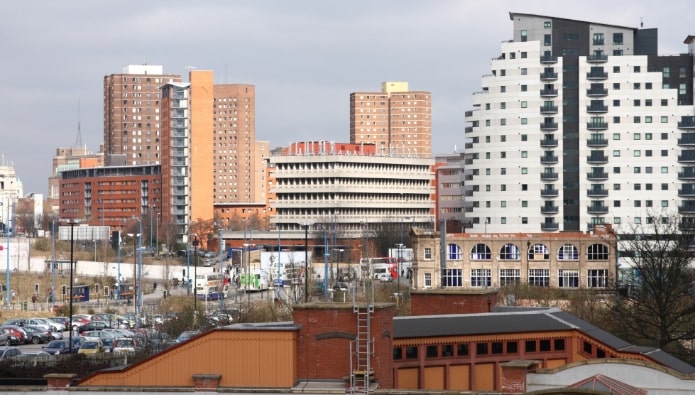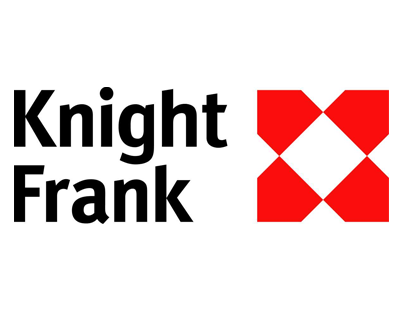The Birmingham Report, released a few weeks ago by global property consultancy Knight Frank, revealed that the Midlands’ residential development market is shedding its ‘emerging hub’ status as it continues to mature at pace.
Knight Frank announced that 2019 was a record year for its Residential Land and Capital Markets teams operating in the region, with some £289 million transacted across the year. This was the highest volume ever transacted by the firm in a single 12 months.
A growing population and rising employment opportunities – boosted by the likes of HMRC using Birmingham as a base – is continuing to drive the city’s new homes and rental markets. It has also prompted a number of major housebuilders to improve and increase their exposure in the city.

“Momentum is certainly building, and Birmingham and the wider region is no longer an emerging hub – it’s an established location in its own right,” Mark Evans, head of regional residential development at Knight Frank, commented. “We’re seeing increasing levels of interest from overseas investors as well as domestic buyers. This positive sentiment is creating an increased appetite from developers to not only acquire good-quality land, but an urgency to launch their existing schemes to market to meet demand.”
Overall, some 4,187 additional dwellings were delivered in 2018-19 in Birmingham, up from 3,160 the previous year. This represented a 33% growth, the highest in over 15 years.
However, it’s estimated that a further 2,500 homes a year are still needed in Birmingham to help meet demand and clear the backlog.
Birmingham, as the UK’s second-largest business hub, has benefited from a fast-growing local economy as well as large-scale city centre regeneration. This, coupled with the city’s relative affordability compared other parts of the UK, has helped to fuel population growth and attract many young professionals and startups to the beating heart of the Midlands.
The reasons outlined above explain why Birmingham is the UK’s most popular city for London leavers, ahead of Brighton, Bristol and Manchester.
“The overall development picture in Birmingham has changed substantially over the past few years,” Oliver Knight, residential research associate at Knight Frank, said. “The new-build market is maturing, evidenced by the emergence of some of the major housebuilders in the city for the first time. Sales volumes have also been robust, despite the increased political uncertainty last year, which suggests that well-located and high-specification schemes will continue to perform strongly in 2020 – especially given the clarity afforded by December’s general election result.”
While the current coronavirus outbreak is likely to dampen and slow things down again, the fundamentals for the Birmingham market seem fairly strong for a bounce-back once the peak of the epidemic is reached in the UK and things slowly start to return to normal.
A rise in activity
Knight Frank’s record year for transactions volumes in 2019 showed clear evidence of an uptick in interest from developers and housebuilders for land.
Across the company’s Birmingham and Stratford offices, which together cover the East and West Midlands, the team closed 27 land deals in 2019, with a combined value of £172 million. These sites, taken together, have the capacity to deliver nearly 4,000 new plots in the region.
In addition, investors are eager to enter into the region’s fast-growing property market. Knight Frank’s Birmingham Residential Capital Market’s team closed nine major tenanted and regional BTR funding deals in 2019, which it says resulted in over £245 million of capital flowing into the region.
“The clarity afforded by a Conservative majority in the General Election has removed some of the uncertainty that was weighing on the UK’s residential property market, and has paved the way for a release of pent-up demand,” Mark Evans said. “With a commitment from Boris Johnson on HS2, and major development taking place in and around Birmingham, we expect to see demand and pricing continue on this already very positive trajectory over the next five years.”
The report was released before the coronavirus crisis really gripped Britain, and led to the government taking far more drastic measures to stop its spread, but it’s as yet unclear how long these measures will need to be in place and what the long-term impact will be on the economy, jobs and the property industry at large.
Cities with solid fundamentals and good long-term prospects are likely to be able to absorb and shoulder the Covid-19 pandemic better than most. To this end, Knight Frank forecasted in its research that residential property prices in the West Midlands will rise by 13% over the next five years, with rental growth expected to mirror this, rising by 10% over the same timeframe.










.png)









Join the conversation
Be the first to comment (please use the comment box below)
Please login to comment